12:30-1:30 p.m.
Panel Discussion: Attracting, Engaging, Training, and Keeping Next Generation Employees
Max Ceron, Owner, SMC Fabrication Regina, and Executive Director, CWB Association
Michael Cole, Regional Campus President, StrataTech Education Group
Angela Phillips, CEO, Phillips Tube Group, Inc.
Lori Tapani, Co-President, Wyoming Machine, Inc.
Thursday, October 17
12:30-1:30 p.m.
Keynote: FABTECH 2024 State of the Industry
Moderator: Tim Heston, Senior Editor, The Fabricator
David Harrold, VP-Corporate Purchasing, Alro Steel Corp.
Greg Frye, CEO and President, Anchor Fabrication
Eric Miller, President, Miller Fabrication
FABTECH 2024 STAMPING SESSIONS
Tuesday, October 15
10-11 a.m.
The Science of Servo Presses
Session S02-Room S321
David Diaz, Servo Press Scientist, Nidec Press & Automation
This presentation explores the distinctive features of servo presses in comparison to mechanical counterparts, showcasing popular applications and motion profiles. The session not only examines theoretical aspects but also provides tips for maximizing productivity with servo presses. Attendees will gain insights into the nuanced dynamics between servo and mechanical presses, enabling informed decision making in manufacturing processes.
12-1 p.m.
Servo-Hydraulic Press Not Only Saves Energy
Session S03-Room S321
Stefan Hildebrandt, Head of Sales Forming Technology, Maschinenfabrik Lauffer
Reduced energy requirements, high reproducibility and cost-effectiveness were the main development goals of the new Lauffer S-Line hydraulic-press series. These requirements are implemented with a new modular-drive concept, which simply consists of a robust variable-displacement pump with variable-speed servo motor. By dispensing with conventional proportional-valve technology, this leads to a significant increase in energy efficiency with simultaneous positive effects in the controllability of the individual axes. In particular, sophisticated deep-drawing processes benefit from the advantages of the new technology.
1:30-2:30 p.m.
Stamping Lubricant Consolidation with a Focus on Health & Safety
Session S04-Room S321
David R. Kinnard, Senior Sales Engineer, Tower Metalworking Fluids
In this presentation, Kinard will share methods used to help Tower Metalworking Fluids’ customers consolidate the lubricants used in their stamping facilities. Kinnard frequently visits press rooms and sees several different stamping fluids being used for similar applications. More often than not, these can be consolidated down to a few, if not just one lubricant designed to meet many needs. Kinnard will discuss performance pre-screening methods and activities that can be completed outside of the plant prior to testing actual parts, saving valuable press time and material. Throughout his presentation, he will focus on how to minimize health and safety concerns during the consolidation process.
1:30-2:30 p.m.
Progressive Die Design: Engineering Principles and Design Guidelines
Session S19-Room S322
Peter Ulintz, PMA Technical Consultant, Pace Technologies, LLC
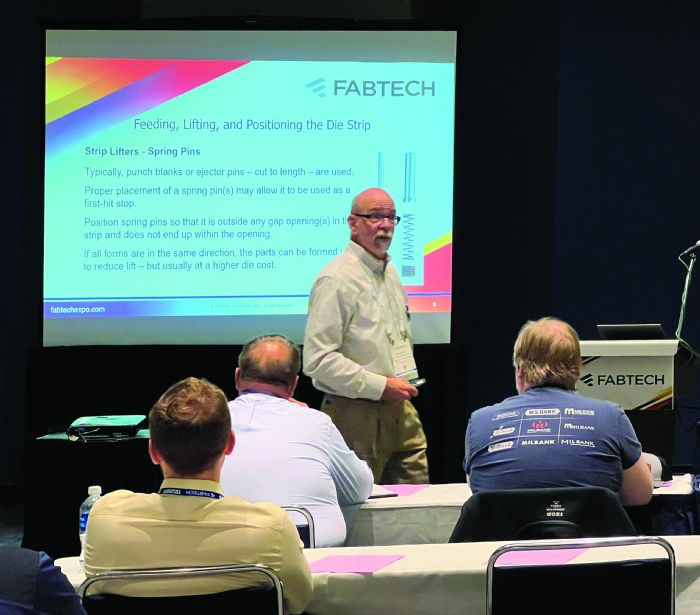 Progressive-stamping dies are exposed to internal and external forces, shocks and vibrations that must be mitigated during the die-design process. This presentation addresses key engineering principles and design guidelines that should be considered during every die design. Topics include off-center loading, horizontal die forces, snapthrough loads, the effects of reverse tonnage, material hold down and stripping systems, stock-guiding and -lifting systems, and designing dies with maintenance in mind.
Progressive-stamping dies are exposed to internal and external forces, shocks and vibrations that must be mitigated during the die-design process. This presentation addresses key engineering principles and design guidelines that should be considered during every die design. Topics include off-center loading, horizontal die forces, snapthrough loads, the effects of reverse tonnage, material hold down and stripping systems, stock-guiding and -lifting systems, and designing dies with maintenance in mind.
3-4 p.m.
Achieving World-Class Toolroom Performance Using Metalworking Fluids
Session S05-Room S321
Steven Lowery, Executive VP, and Chris Fletcher, Regional Sales Manager/MWF Specialist, oelheld U.S., Inc.
This presentation will review the various manufacturing disciplines and how proper metalworking-fluids selection, management and cost-effectiveness can help achieve top performance. Attendees will learn how to minimize environmental impact by extending fluid life, while keeping performance at peak levels. Cost-saving techniques will be evaluated and real-world examples presented.
3-4 p.m.
Progressive Die Design: Evaluating Strip Layouts
Session S20-Room S322
Peter Ulintz, PMA Technical Consultant, Pace Technologies, LLC
Several different progressive-die strip layouts can be derived for any given part, but how does one know which process is best? This presentation proposes a strip-evaluation and ranking method for progressive-die strips and various part-carrier designs.
Wednesday, October 16
8:30-9:30 a.m.
Sensors for Die Protection—Make Die Crashes a Thing of the Past
Session S06-Room S321
James B. Finnerty, Product Manager, Wintriss Controls Group
This presentation covers every aspect of implementing a die-protection program as well as sensor selection and installation. Whether an attendee is an experienced die-protection user or has never installed a sensor, the program will provide them with the information needed to improve the stamping operation and put an end to repetitive die crashes. Using practical, application-oriented examples, attendees will learn best practices for detecting misfeeds, non-ejected parts, improper transfer, material buckling and other potentially die-threatening issues using state-of-the-art electronic sensors.
10-11 a.m.
Best Practices Toward Dimensional Compliance of Stamped Panels
Session S22-Room S322
Kidambi S. Kannan, Technical Specialist, AutoForm Engineering USA, Inc.
Springback-management best practices, diligently accumulated over decades, have been effective in managing dimensional compliance on mild-steel and HSLA stampings—even with little to no support from virtual-engineering tools. In the past dozen years, however, newer grades of advanced high-strength steels and aluminum alloys have upended this store of accepted best practices and collective wisdom. This presentation will review differences in the behavior between various classes of sheet metal, and how these influence springback outcomes. Best practices in the application of virtual-engineering tools toward engineering dies and processes capable of producing dimensionally compliant panels also will be outlined.
12-1 p.m.
Automatic In-Die Part Quality Monitoring and Tool Adjustments
Session S08-Room S321
James Barrett, MSEE, President, Link Electric & Safety Control
Implementation of part measurement, die adjustment and part tracking can result not only in 100% verification of critical part features, but also in significantly increased machine utilization and more reliable die protection. Learn the practical methods to select, apply and integrate sensors and control systems in order to fulfill accuracy and quality requirements.
12-1 p.m.
Deep Drawing Cylindrical Shells: Tooling Principles and Cost-Estimating Guidelines
Session S23-Room S322
Peter Ulintz, PMA Technical Consultant, Pace Technologies, LLC
This presentation examines the fundamental principles of deep drawing cylindrical shells. Topics include the number of drawing steps required, blank-size estimation, draw-reduction limits, redrawing, reverse-redrawing, wall ironing and estimating parts per minute.
1:30-2:30 p.m.
Deep Drawing Rectangular Box Shells: Tooling Principles and Design Guidelines
Session S24-Room S322
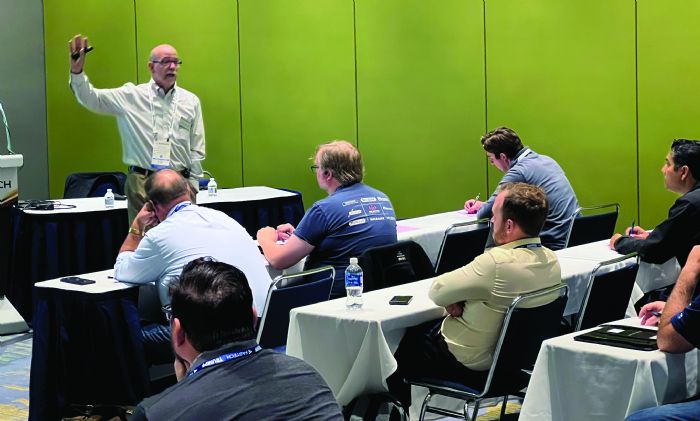 Peter Ulintz, PMA Technical Consultant, Pace Technologies, LLC
Peter Ulintz, PMA Technical Consultant, Pace Technologies, LLC
This presentation examines the fundamental principles of deep drawing square and rectangular box shells. Topics include determining the number of drawing steps required, blank-size estimation, draw-reduction limits, redrawing methods and the application of draw beads. Die-design guidelines also are presented, including developing sequential draw-shell profiles.
1:30-2:30 p.m.
Ready for the Future? A Look at Press Automation
Session S09-Room S321
Marc Decker, Director Sales Northern Europe & USA, Automatic-Systeme Dreher GmbH
Press automation has been established in production for decades and has been repeatedly adapted. Today, Industry 4.0 can be described as a revolution in stamping technology. Further requirements are coming to the fore, whether it be in the production of complex multifunctional parts and integral assemblies or the control of the material used and the finished components. As a result, the requirements for the type of material feed and the corresponding handling also are becoming more complex. This also includes digitalization and artificial intelligence, not forgetting the optimization of existing automation systems.
3-4 p.m.
Take Control of Your Metal Stamping Equipment Condition and Costs: Solutions for the Future
Session S10-Room S321
Jeffery R. Fredline, Owner, Prestrade
It has never been more important for metal formers to understand their metal stamping equipment and to use it properly. As repair and replacement costs increase, benchmarking and planning for the future will minimize unscheduled downtime and increase overall bottom-line profits. This presentation will offer solutions to solve common problems and control costs.
Thursday, October 17
8:30-9:30 a.m.
Solving Progressive Die Problems
Session S11-Room S321
Peter Ulintz, PMA Technical Consultant, Pace Technologies, LLC
Progressive dies routinely are reworked, modified or adjusted in the press when production problems occur, or quality issues present themselves. In many instances, the die is not the root cause of the problem and, therefore, the problems resurface or new problems arise. This presentation provides key elements for solving progressive-die problems, tips for success and validating solutions.
10-11 a.m.
Strengthening Die Maintenance Programs
Session S12-Room S321
Peter Ulintz, PMA Technical Consultant, Pace Technologies, LLC
Die maintenance and die repair are not the same. Nonetheless, many stamping companies combine the cost of die maintenance with the cost of die repair to simplify reporting. This presentation examines the differences between repair and maintenance and the hidden costs within each. Attendees will learn to distinguish between the cost of maintenance and cost of repair—and to measure and report each properly—in order to cost-justify a robust die-maintenance program that reduces the cost of die repair. MF
See also: Precision Metalforming Association
Technologies: Management
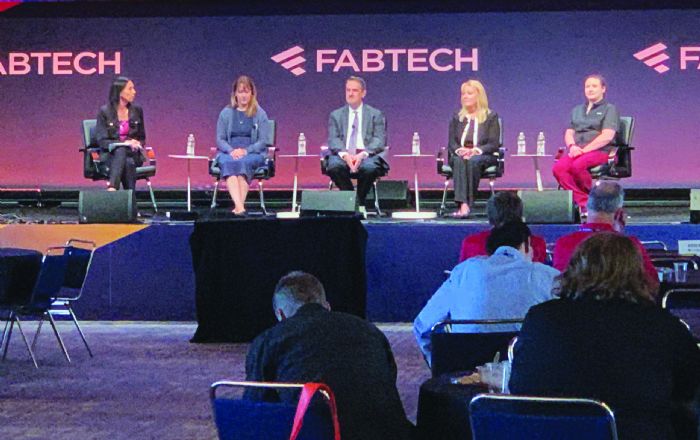 Embracing Change: Lessons from Immigration Stories Applied to Manufacturing Transformation; Andrew Kossowski, Owner, Veterans Metal
Embracing Change: Lessons from Immigration Stories Applied to Manufacturing Transformation; Andrew Kossowski, Owner, Veterans Metal





 Progressive-stamping dies are exposed to internal and external forces, shocks and vibrations that must be mitigated during the die-design process. This presentation addresses key engineering principles and design guidelines that should be considered during every die design. Topics include off-center loading, horizontal die forces, snapthrough loads, the effects of reverse tonnage, material hold down and stripping systems, stock-guiding and -lifting systems, and designing dies with maintenance in mind.
Progressive-stamping dies are exposed to internal and external forces, shocks and vibrations that must be mitigated during the die-design process. This presentation addresses key engineering principles and design guidelines that should be considered during every die design. Topics include off-center loading, horizontal die forces, snapthrough loads, the effects of reverse tonnage, material hold down and stripping systems, stock-guiding and -lifting systems, and designing dies with maintenance in mind. Peter Ulintz, PMA Technical Consultant, Pace Technologies, LLC
Peter Ulintz, PMA Technical Consultant, Pace Technologies, LLC
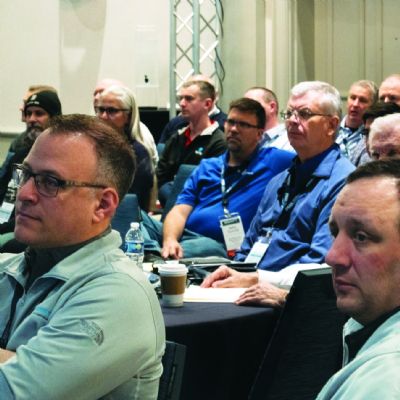
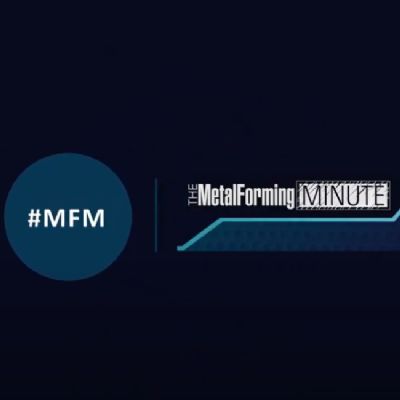
 Video
Video